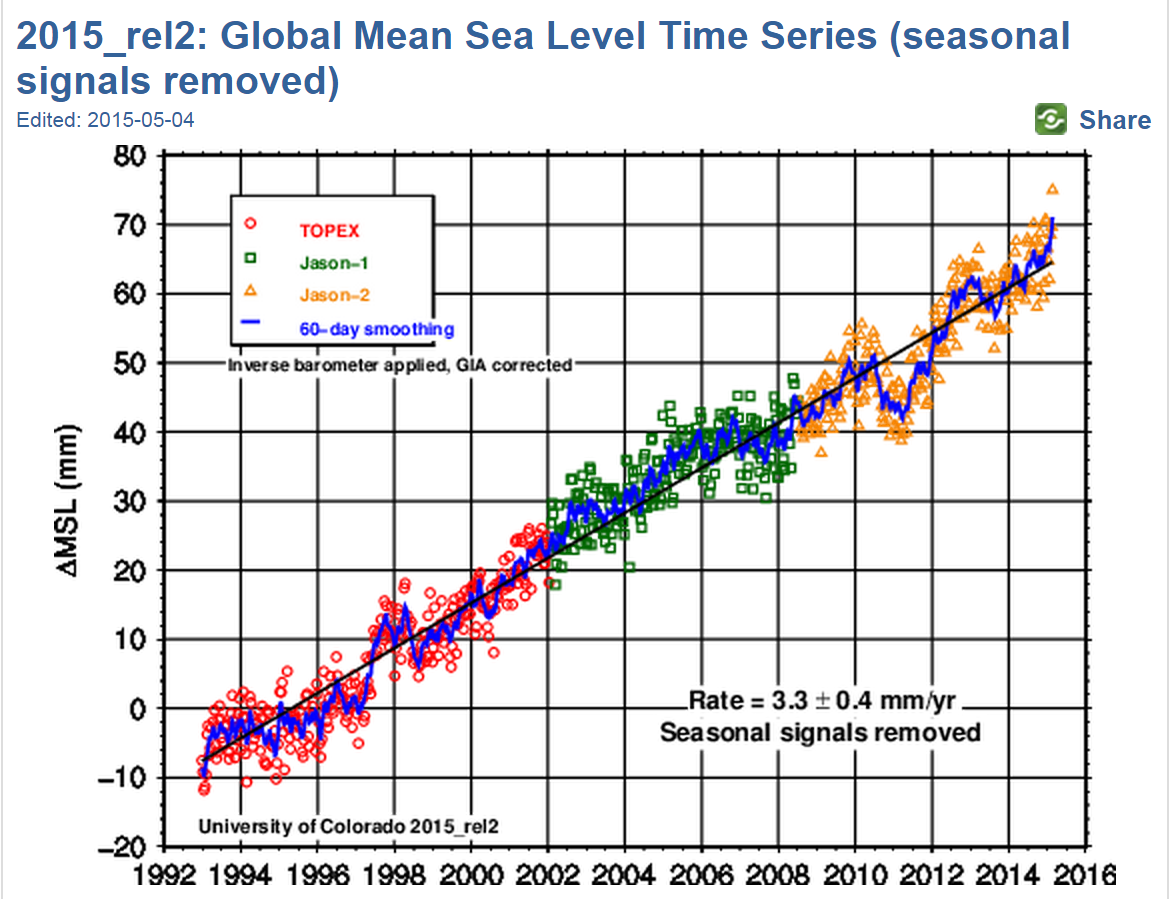CU just updated their global mean sea level. Seasonal removed GMSL is up ~4 mm since the last update. The rate also had a slight bump to 3.3 mm/year from 3.2 mm/year.
 http://sealevel.colorado.edu/
http://sealevel.colorado.edu/
Up the water goes!!!
thats not what Watson 2015 says. +2.6 ± 0.4 mm yr−1 (includes the GIA, so 2.3). of course the headlines for the Nature paper is that SLR is accelerating. how much???? (edit-
http://www.nature.com/nature/journal/v479/n7374/extref/nature10581-s1.pdf )
"
Reader Robbo wrote in to say he so was astonished at the ABC story, he read the paper, only to find a very different picture and problems he would fail a first year student for:
Then I carefully read the original paper, and they are completely different from the press release and the ABC version. The paper claims that the rise rate in the last 20 years is actually less than previously thought (that is not mentioned or is at best, carefully massaged by the authors’ press release and ABC piece). But it is true that the title and punchline of the Nature paper is about acceleration: sea level rise is accelerating, they say. And how much is it accelerating? Wait for it: it’s accelerating at 0.043 +/- 0.058 mm/yr2. That’s consistent with zero! I would fail a first year student claiming that 0.043 +/- 0.058 is a Nature-level result.
Finally, how do they get that acceleration result? They fit a second-order polynomial to the data (Fig 3) and take the coefficient of the t^2 term. Again, basic undergrad science, if the linear fit to the data is statistically acceptable, you take the linear fit (the lowest order polynomial that is statistically acceptable). You can always fit the same data with higher and higher order polynomials and get terms in t^2, t^3, t^4,….and of course when you extrapolate those terms to the future your fit goes wild but that is complete rubbish. In their case, all they should have said was that the linear fit is statistically equivalent to the quadratic fit (because a = consistent with 0), therefore we detect no acceleration, end of the paper.
"



